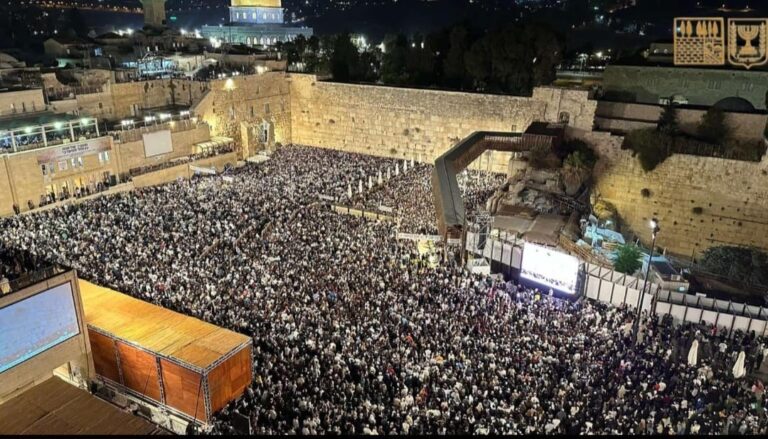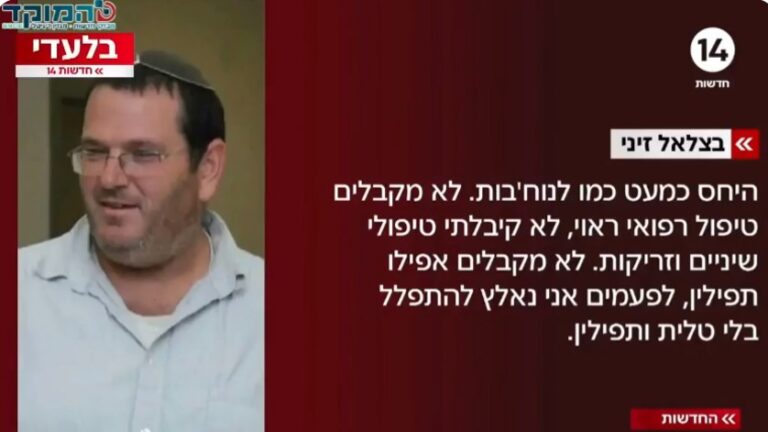By Rabbi Yair Hoffman for the Five Towns Jewish Home
For years, the city of Miami Beach had been harassing the Kerestirer Shtiebel, an invitation-only private minyan. The harassment was a negation of the first amendment rights of the citizens of this country. The city had evem sent code inspectors to film the shtiebel indoors and had further sent inspectors an astounding 126 times. Unprecedented.
The City Code Enforcers testified that every “Jewish looking person” on the street walked into the Keristier Shteibel. The City executed a cease and desist injunction to stop the davening,
Finally, there was no option but to file a federal lawsuit, and a top-law firm was engaged.
To back themselves up, the city hired a Harvard PhD and former faculty member of Chovevei Torah to prepare a report. What is Chovevei Torah? According to an article in the Yated, “it is an institution that professes to be “Orthodox” but, in fact, deviates from normative Orthodox thought, halacha and practice as accepted by Rabbonim and Poskim from across the spectrum of Orthodoxy. The article noted that, “a spirited, halachic and ideological battle has been waged from within the walls of Yeshiva University (RIETS) and the Rabbinical Council of American (RCA) against this movement.”
At first glance, the report filed by the YCT faculty member and later adapted by yet another “expert witness” appeared devastating. But the report had several problems and inaccuracies. This author was hired by the law firm as an expert-witness to both prepare a countering brief and to testify and be cross-examined by the opposing counsel.
The counter-report stated that the underlying issue here is the fundamental first amendment right of an individual to conduct a prayer gathering of a quorum that is called a “private minyan” in a single-family home and whether or not, the City of Miami Beach, a municipality in the United States of America, can forbid that right by characterizing a Minyan that is “private” as a “religious institution” and thus deem it in violation of its Municipal Code.
My brief argued that there are, in fact, five different types of Minyanim. The Harvard PhD was conflating these five types of minyanim to make them all appear as fully-functional public religious institutions and that municipalities may not forbid Minyanim Types A, B, C, and D as it is a violation of the first amendment to do so – notwithstanding a paragraph that purports to allow private prayer.
What are the five types of minyanim?
Minyan Type A – Can best be described as “One and Done.” It is when a group of ten Sabbath observing men will gather together once, on an ad-hoc basis to form a minyan. This, most often happens at an airport, prior to a flight. Often, these ten people (or more) will never again form that minyan together again. An individual looks for men wearing hats or Yarmulkes identifying them as Jewish (or a baseball cap identifying them as possibly Jewish), and ask them, “Mincha?” Usually, the person will nod, and the enterprising individual may answer, “We will begin in ten minutes.”
Minyan Type B is a Wall Street Type Minyan. This can best be described as a regular minyan that is held in an office building. There are no special accouterments unique to it with the exception of some prayer books that may be kept in an employee’s desk. An example of this minyan Type was featured in a New York Times article, entitled, “Prayer Amid the Office Machines.”
Minyan Type C is a regular minyan held in a private home. Rabbeinu Gershom discusses someone who loaned his private house for use to hold a Minyan. Rabbi Meir Katzenellenbogen of Padua allows the owner to forbid anyone not on the original lease from coming . There is no sanctity in the room that is used for this minyan. In this type of minyan, the room may “double dip” for events. It can often be a living room or dining room or some other room. If it is used on Shabbos (or a Monday or Thursday) a Sefer Torah) is brought out to be read from.
Minyan Type D is a privately owned synagogue closed to the public. The sanctity of such a synagogue is significantly less than that of a public synagogue . It is not open to the public at all, but only by invitation of the owner. It is, by definition, private.
We find in the Talmud (Yuma 11b) that there are both public synagogues and a private synagogues. There are distinct differences between these two that are cited in halacha. For further discussion on this (Minyan Type D) – see Raavyah, Tractate Megillah Chapter 590 “Perek Basra.”; The Bach OC Chapter 154:8; Rabbi Joseph Teomim, PMG OC, in his Aishel Avrohom 153:1 and numerous other sources.
Minyan Type E is a public synagogue. Although it is open to other members of the public, the membership can be limited. If a membership fee is not paid, then a member can be barred.
Ultimately, the judge issued a Summary Judgement that found the city did indeed violate fundamental first amendment rights.
The judge’s summary judgment stated that Miami Beach’s interpretation of their own statute “produces absurd results.” And that following their own logic, “any group of people organized for a common purpose that conducts religious activity with members of the group is acting as a religious institution and cannot avail itself of the private prayer exception. Under this interpretation, for example, a book club which is a group of people organized for the common purpose of reading and discussing books and therefore an “establishment, organization or association” — would be prohibited from beginning a meeting in a residential home of one of its members with a prayer. Such a broad prohibition on religious activity is likely unconstitutional.”
The judge further stated that to establish a First Amendment retaliation claim, a plaintiff must show (1) it engaged in constitutionally protected activity, (2) the defendant took adverse action that would deter a person of ordinary firmness from the exercise of First Amendment rights, and (3) there is a causal connection between the defendant’s adverse action and the plaintiff’s conduct. Private religious speech, such as that at issue in this case, is protected under the First Amendment. Our precedent establishes that private religious speech, far from being a First Amendment orphan, is as fully protected under the Free Speech Clause as secular private expression.”
The city settled for 1.3 million dollars in damages and a written agreement not to further harass the shteibel. Boruch Hashem.
The author can be reached at [email protected]











6 Responses
I don’t know much as this suit or the details, but I find an “invitation only” minyan to be problematic and distasteful. If someone wants to daven with a minyan, but isn’t invited, are they told to leave? If someone is new and unfamiliar that it’s an “invite only” minyan, are they told to daven elsewhere. If that’s the case, then this minyan shouldn’t exist. Davening to Hakadosh Baruchu is not of “invite only” nature. Perhaps I misunderstand what “invite only” means.
@TGIShabbos:
No, the Karisterer shteibel is nothing like that at all! It might of been stated like that for “legal” reasons. If anything, it’s the Karisterer shteibel that is thee most inclusive, caring, warm, welcoming Shul in all of Miami Beach. My Father Z”L and us boys had davened there for years, going back to the days when Rav Naftali Gross ZT”L was alive (in the 80’s). The Gross family has always been warmly welcoming to all Yidden regardless of background or Torah knowledge. They treat everyone like a mensch. It continues in that same encouraging derech till today. Whenever I fly down to visit my mother, I always make it my business to daven there. May Reb Yokel Gross continue to be marich yomim vishonim.
Responding to TGIShabbos. While you might find it “problematic and distasteful” I think you’re not quite getting it. Just like I can’t walk into your house and join your Shabbos seuda even though you’re hosting your entire block so too I can’t walk into your house and join your minyan which may comprise only those who follow certain minhagim because you might want a homogeneous group etc. A private minyan is just that private and it’s housed in a private venue so While it may not sit well with you there is certainly nothing wrong with it. All that being said based on the behavior of the city it’s obvious why the minyan’s policy is such and having that policy protects them legally. You can daven to Hashem anywhere and anytime (obviously there are halachic places
Cont. (Obviously there are places where you can’t like a bathroom etc ) but the point is just because you know a minyan is taking place doesn’t entitle you to be a part of it.
ZM, it’s very timely that this weeks parsha reads “ Kol Yisrael Arevim zeh ba-zeh”. I’ll daven in the condo hallway, so that I don’t compromise a minyan with their personal minhagim. I’m not asking for an Aliyah or to daven for the Amud. I know, my response sounds obnoxious, to a tone deaf response you provided me. It’s funny when an minyan needs an 10th man, it becomes irrelevant if they find a 10th man in a blue shabbos shirt, but otherwise: no entry for you! Anyway, we discovered that the minyan is open to anyone who wants to daven.
TGI, if a minyan is private and invitation-only, how would you even know that it exists, or where it is? You would never show up in the first place, and therefore you would never have to be asked to leave.